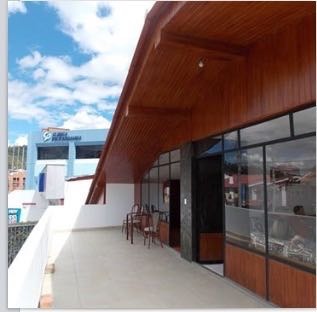Ahead of his inauguration, Correa talks about his plans for the next four years, says he won’t run again in 2017
On the eve of his inauguration for another four-year term, Ecuadorian President Rafael Correa discussed his goals for the second full term of his presidency and said that he will not run again in 2017.
"We are a ll necessary, but nobody is indispensable," the 50-year-old head of state said in a television interview, expressing confidence that his Alianza Pais movement will find a new leader by the time the next presidential election rolls around.
ll necessary, but nobody is indispensable," the 50-year-old head of state said in a television interview, expressing confidence that his Alianza Pais movement will find a new leader by the time the next presidential election rolls around.
“I shoud also point out that, by law, I cannot run for another term,” he added. “I supported the constitution that established the rule and I have no plans to oppose that now.”
Correa's heir apparent has already been annointed, according to political insiders. She is Gabriela Rivadeneira, a 29-year-old Otavalo native, recently elected as president of the National Assembly.
Correa, a European and U.S-educated economist who first took office in 2007, convened an early election in 2009 under the new constitution that he had promoted.
He won that contest and was re-elected in February of this year, garnering nearly 57 percent of the vote in a field of seven candidates, 30 percent ahead of his closest rival.
Alianza Pais also secured a comfortable majority in Congress.
"We have advanced a lot, the country is totally different from what we received six years ago," Correa said, though adding that "much remains to be done.”
His chief aim, he said, is "to change the relationships of power" to a sufficient degree that "the traditional powers no longer dominate in the country.”
Ecuador is set to earn around $5.7 billion from oil production and exports this year and some $4 billion of that total will go toward funding the government, the president said.
The administration's goals for the next four years include an overhaul of the financial system to ensure that Ecuador's destiny is determined by the people, not capital, Correa said.
Discussing his desire to devote more resources to children and education, the president stressed that fulfilling those aspirations depends on diversifying "the productive matrix" and creating a "knowledge economy.”
"We will to continue funding improvements in education, health care and general infrastructure," he said. "Our goal is to put Ecuador in the first rank of Latin America countries in standard of living, education and funding for science and technology." According to the United Nations fiscal research office, Ecuador spends more on public works and welfare programs, as a percentage of GDP, than any other country in the western hemisphere.
Correa said he was not sure what he would do after leaving office. In earlier interviews he said he would spend time at a home he and his Belgian-born wife own near Brussels as well as visit family members who live in Orange County, California.
Photo caption: Rafael Correa at his 2009 inauguration.





















